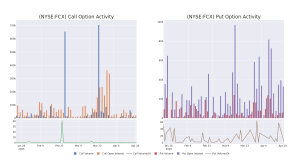The “Magnificent Seven” is a name given to Apple, Microsoft (NASDAQ: MSFT), Nvidia, Amazon, Alphabet, Meta Platforms, and Tesla because of their impact on the market over the past few years. Unfortunately, the “Magnificent Seven” hasn’t been so magnificent in recent weeks, with all seven down year to date.
There are various reasons for their individual struggles, but they experienced a collective decline after President Donald Trump’s new tariff plan was announced.
Where to invest $1,000 right now? Our analyst team just revealed what they believe are the 10 best stocks to buy right now. Continue »
Having the Magnificent Seven stocks slump isn’t ideal because they account for a lot of many major indexes (especially the S&P 500), but it does present investors with a good opportunity to buy great companies at a “discounted” price.
Of all the Magnificent Seven stocks that have slumped, Microsoft is one you’ll regret not buying at current prices. Let’s take a look at why.
First, let’s talk about the potential tariff impact on Microsoft’s business.
Like many other big tech companies, Microsoft relies heavily on imported electronic parts and raw materials. This goes for its consumer electronics as well as for the data centers that it needs to run its cloud platform, Azure. These data centers require networking equipment, servers, and other equipment, which Microsoft imports from countries like China, South Korea, and Taiwan.
These parts will likely become more expensive, giving Microsoft three options: pass on the costs to customers, absorb the extra costs themselves, or delay or cancel data center expansion plans.
Even before the tariff announcement, Microsoft pulled back from some data center expansion plans in the U.S. and Europe, so it’s not farfetched for it to choose that route. If it decides to absorb the higher costs, its profit margins give it some breathing room to determine the better long-term option.
I focused on the increased costs relative to Microsoft’s data centers because of how important Azure is for its business growth.
In the second quarter of its fiscal year 2025, Microsoft’s Intelligent Cloud segment (which includes Azure) generated $25.5 billion in revenue. That was a 19% year-over-year increase and over 36% of Microsoft’s total revenue.
Azure is firmly in second place in cloud service market share, trailing Amazon Web Services (AWS), but its growth has been impressive. It likely won’t pass AWS in market share any time soon, but it has been chipping away, highlighting how competitive Azure has become as a cloud platform.

